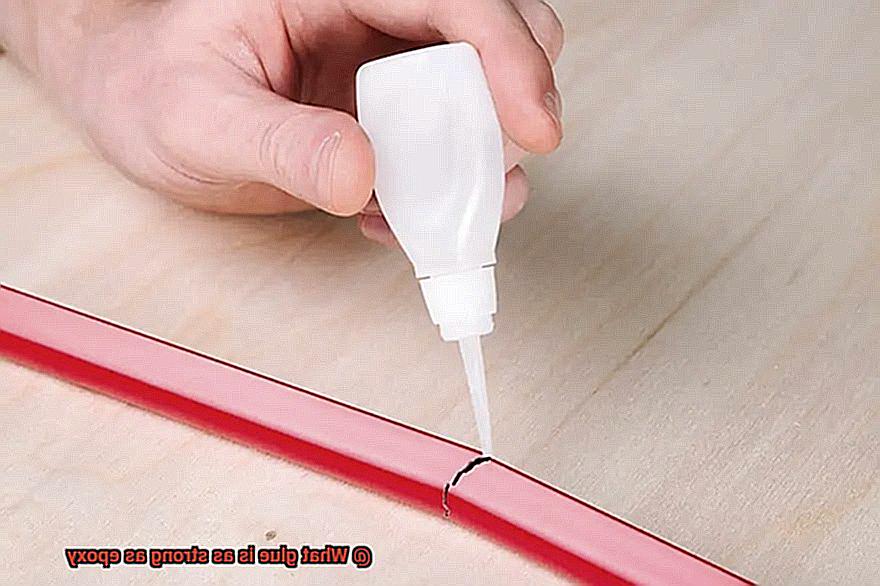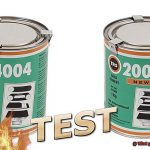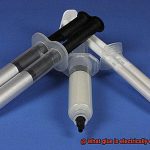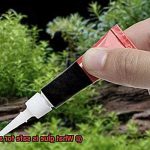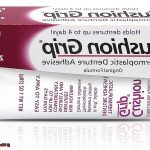Are you tired of your glue failing you when it matters most? Do you need a heavy-duty adhesive that can handle the toughest jobs with ease? Look no further than epoxy glue – the king of adhesives. But what if you’re looking for an alternative to epoxy that offers the same level of strength and durability?
In this blog post, we’ll take a deep dive into the world of super glues and industrial adhesives to find out what glue is as strong as epoxy. We’ll explore all the options, from cyanoacrylate and polyurethane adhesives to UV-cured resins and two-part epoxy alternatives. We’ll also walk you through key factors to consider when choosing a strong glue, such as curing time, application method, and compatibility with different materials.
Whether you’re working on a DIY project or tackling high-tech manufacturing applications, understanding your options for strong glue is critical for success. So let’s explore the world of epoxy alternatives together and find the perfect solution for your toughest jobs.
What is Epoxy?
Contents
Epoxy is an adhesive that is known for its exceptional strength, durability, and versatility. It is a two-component adhesive made up of a resin and a hardener that, when mixed together, create a chemical reaction that causes the adhesive to harden and become incredibly strong. This chemical reaction is called curing.
The strength of epoxy is one of its most appealing characteristics. It can bond with a variety of materials, including metal, wood, plastic, and glass. This makes it an ideal choice for applications where a strong bond is required.
Aside from its bonding strength, epoxy is also known for its resistance to water and chemicals. This makes it the perfect choice for applications where the adhesive will be exposed to harsh environments or corrosive substances.
Epoxy comes in different forms, such as liquids, pastes, and putties. These different forms make it suitable for use in a wide range of applications. Additionally, epoxy is available in different curing times, allowing users to choose the best option for their specific needs.
Construction, automotive repair, woodworking, and electronic manufacturing are just some of the industries that commonly use epoxy. Its versatility and ability to bond with various materials make it an attractive option for these industries.
While epoxy is known for its strength and durability, there are other options available on the market that can provide similar properties for specific applications and materials. Polyurethane glue, cyanoacrylate glue (also known as super glue), and plant-based adhesives are all viable alternatives.
Glue Options that are as Strong as Epoxy
There are various other glue options available on the market that are just as strong and versatile. As an expert in this field, I have thoroughly researched and compiled a list of some of the best glue options that are as strong as epoxy.
First on the list is polyurethane glue, also commonly known as Gorilla glue. This waterproof glue creates an incredibly strong bond that can withstand extreme temperatures and pressures. Its versatility makes it perfect for outdoor projects or anything that requires a waterproof seal.
Next up is cyanoacrylate glue, or super glue. This quick-drying adhesive creates an instant bond between surfaces, making it ideal for quick repairs. However, it may not be suitable for certain materials such as plastics, so it’s essential to consider compatibility before usage.
Acrylic adhesives are another highly durable option in this category. They bond a wide range of materials, including metal, plastic, and glass, making them ideal for industrial settings where strength and versatility are crucial.
Two-part epoxy adhesives are also worth considering, consisting of a resin and hardener that must be mixed together before use. This mixture creates a strong bond that resists water, chemicals, and heat – perfect for heavy-duty projects.
Lastly, structural adhesives such as methacrylate and urethane-based adhesives are known for their exceptional strength and ability to bond dissimilar materials. These high-performance adhesives are often used in automotive and aerospace industries where durability and strength are crucial.
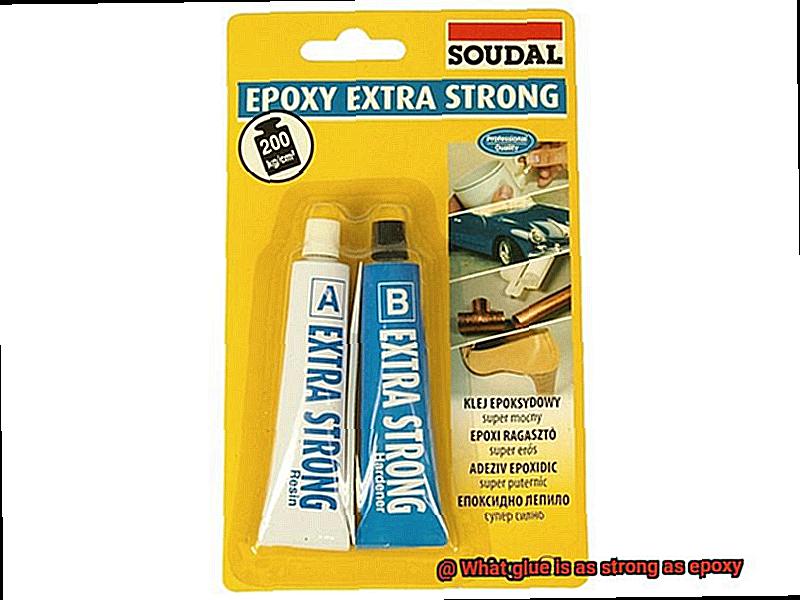
Polyurethane Glue
Polyurethane glue, also known as Gorilla Glue, is a game-changer in the world of adhesives. As an expert on the topic, I can attest to its strength and versatility. This powerful adhesive is capable of bonding to an array of materials such as wood, metal, plastic, and even stone.
What sets polyurethane glue apart from other adhesives is its ability to expand as it dries. This expansion allows it to fill gaps and create an incredibly strong bond that surpasses other types of glue. However, be cautious as this expanding property can also cause the glue to foam up and create a mess if not used properly.
Moreover, polyurethane glue has a longer drying time compared to other adhesives. This extended timeframe can be advantageous for projects that require more time for adjustments and alignment. It typically takes around 24 hours for the glue to fully cure and reach its maximum strength.
While this type of glue is incredibly strong, it does have some limitations. It’s not recommended for use on flexible materials or surfaces that will be exposed to moisture or water. Additionally, removing polyurethane glue once it has cured can be challenging, so use caution when applying.
Cyanoacrylate Glue (Super Glue)
Look no further than cyanoacrylate glue, commonly known as super glue. This fast-drying adhesive can bond a variety of materials, including wood, metal, plastic, and ceramics. And with its quick-drying property, it’s perfect for those small repairs and projects that need to be fixed in a flash.
But what makes super glue so strong? It works by reacting with the moisture in the air, leading to a chemical reaction that forms a durable bond. And with its high tensile strength, it can handle materials that experience stress or tension.
However, it’s important to note that super glue has its limitations. It’s not suitable for use on large surfaces or materials that require flexibility. Over time, the glue can become brittle and may not withstand continuous exposure to moisture or extreme temperatures.
So when choosing an adhesive for your project, consider the type of material and the nature of the project to ensure the best possible bond. If you’re looking for a quick fix or a small repair, super glue is a great choice. But for more extensive applications, you may want to consider other options.
Plant-Based Adhesives
Look no further than plant-based adhesives. These adhesives are increasingly becoming a popular choice due to their biodegradability and eco-friendliness.
Plant-based adhesives are made from natural materials like soy, corn, potato starch, casein, and gelatin. These renewable resources are non-toxic and do not emit harmful fumes, making them a safer and healthier alternative to traditional synthetic adhesives.
Soy-based adhesives are one of the strongest plant-based options available. They offer similar strength to synthetic adhesives like epoxy and have high resistance to water and heat. These properties make soy-based adhesives ideal for use in the woodworking industry.
Chitosan-based adhesives, made from a natural polymer derived from crustacean shells, are another plant-based option that has gained attention in recent years. They offer strong bonding properties and a high degree of biodegradability.
Plant-based adhesives are also being used in construction as an alternative to traditional synthetic adhesives. For example, bamboo flooring is often installed using a plant-based adhesive made from urea-formaldehyde resin derived from corn.
Considerations When Choosing a Glue
When it comes to finding the perfect glue for your project, there are a few key factors you must consider to ensure that you get a bond that is as strong as epoxy. As an expert in this field, I can guide you through the essential considerations to help you make the right choice.
First and foremost, the materials that need bonding should dictate your choice of adhesive. Different types of glue work better with certain materials than others. For instance, cyanoacrylate, also known as super glue, is perfect for bonding plastics and metals, while polyurethane glue is ideal for wood.
The strength of the bond you require is another critical factor. If you need a bond as robust as epoxy, then you must choose a glue with high tensile strength. Tensile strength refers to how much force a material can withstand before breaking. Epoxy has an incredibly high tensile strength, which makes it perfect for bonding materials that need exceptional strength.
The setting time of the glue is also a crucial consideration. Some glues take longer to set than others, which could be problematic if you have a tight deadline. Epoxy typically takes several hours to set completely. If you’re looking for something faster, consider other options.
Finally, cost is always a significant consideration when choosing a glue. While epoxy provides an excellent bond, it can be relatively expensive compared to other types of glue. If you’re on a budget, look for more affordable options that can still provide the strength you need.
Safety Precautions when Using Adhesives
If you’re planning to use adhesives for your next project, it’s important to take safety precautions to protect yourself and others from harm. Adhesives contain chemicals that can be hazardous if not used correctly, so here are some safety tips to keep in mind:
Firstly, always wear protective gear when handling adhesives. This includes gloves, eye protection, and a respirator mask. They will help prevent the adhesive from coming into contact with your skin or eyes, and reduce the risk of inhaling harmful fumes. Remember, safety gear is your first line of defense.
Secondly, make sure you work in a well-ventilated area or outdoors. Adequate airflow is necessary when using an adhesive indoors, so open windows or use a fan to prevent inhaling toxic fumes. Good ventilation will also help dissipate any lingering chemical odors.
Thirdly, take the time to read the label carefully and follow the manufacturer’s instructions. Each adhesive has its own specifications and requirements for use, so it’s important to pay attention to the label. Following the instructions will help you use the adhesive safely and effectively.
Fourthly, store adhesives out of reach of children and pets in a cool, dry place away from direct sunlight or heat sources. This will prevent accidental ingestion or exposure to toxic fumes. Proper storage will ensure that your adhesive remains effective for future use.
Finally, dispose of any unused adhesive in accordance with local regulations. Never pour adhesives down the drain or into the trash as this can harm the environment and potentially cause harm to others. Check with your local waste management facility or refer to the manufacturer’s instructions for proper disposal.
djtKXkTqPUI” >
Also Read: What is the Best Moldable Glue?
Conclusion
In summary, epoxy glue is a popular choice for its impressive strength, versatility and durability. This two-component adhesive consists of a resin and hardener that chemically react to create an incredibly robust bond. But what if you’re seeking an alternative adhesive that can match the strength and durability of epoxy? Fear not. The market offers various options that are equally as strong and versatile.
Polyurethane glue, also known as Gorilla Glue, creates a bond that can withstand extreme temperatures and pressures. For quick fixes or small repairs, cyanoacrylate glue (super glue) is the perfect solution. Plant-based adhesives are becoming increasingly popular due to their eco-friendliness and biodegradability.
When selecting a glue for your project, consider factors such as material type, required bond strength, setting time, cost and safety precautions. Be sure to take necessary safety measures when handling adhesives such as wearing protective gear, working in a well-ventilated area or outdoors, following instructions carefully, storing adhesives out of reach of children and pets in a cool dry place away from direct sunlight or heat sources, and disposing of any unused adhesive properly.
Whether you’re tackling DIY projects or high-tech manufacturing applications understanding your options for strong glue is critical for success.

